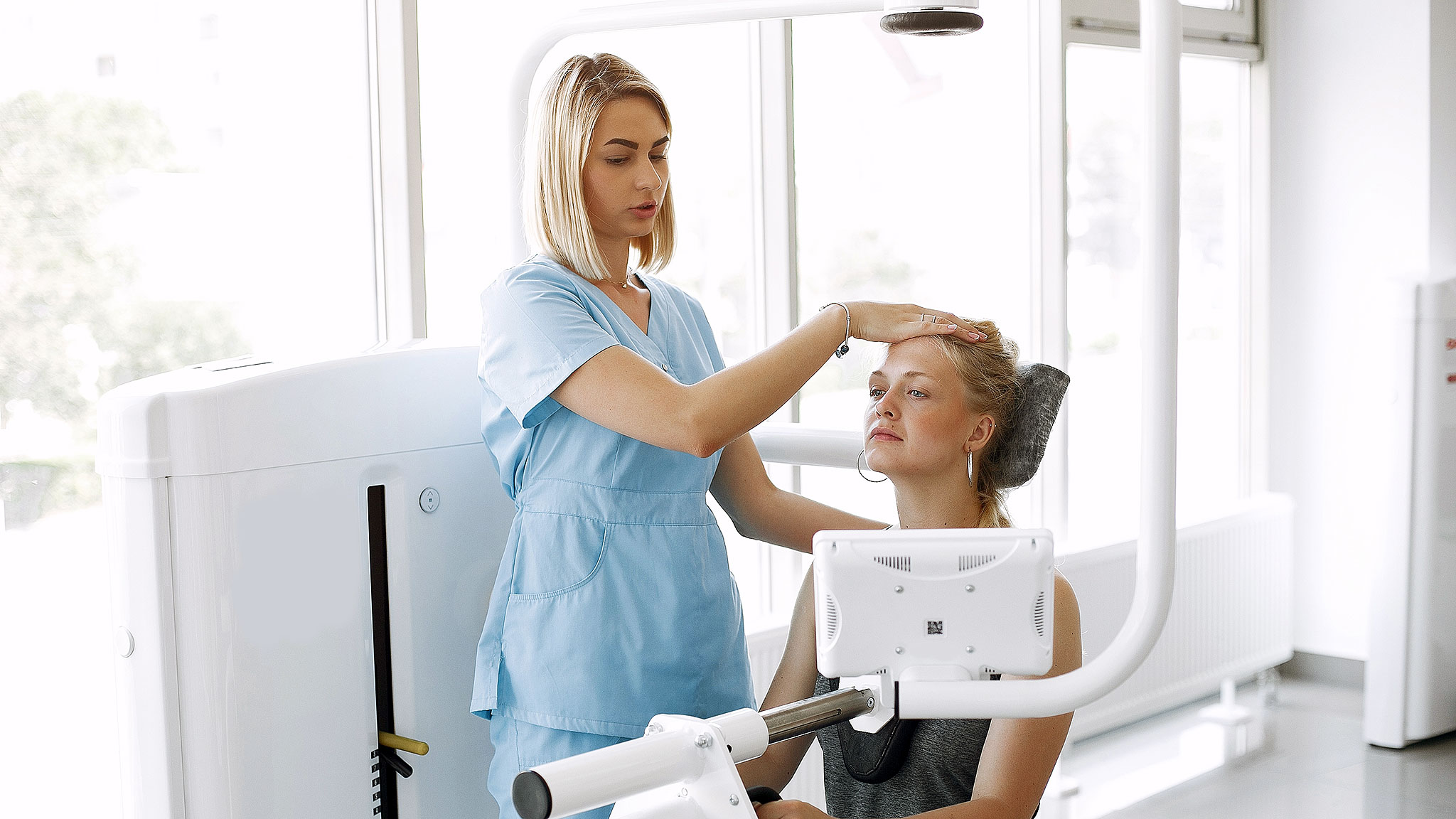Step 1 — Listen & map
We start with your timeline and triggers: head positions, screens, grocery stores, driving, stairs. Then we examine eyes, balance, neck, and autonomics—the systems most likely to keep symptoms alive.
Step 2 — Test what matters
- Provocation/relief patterns with gentle head positions
- Gaze stability & balance (VOR, stance)
- Cervical function (deep flexor endurance, joint position sense)
- Orthostatic screening (if lightheaded or tachycardic)
Step 3 — Targeted treatment plan
- Rehab: vestibular + cervical sensorimotor (not generic stretching)
- Lifestyle: sleep, hydration, graded exposure, screen hygiene
- Procedures when indicated: occipital nerve or facet/medial branch blocks; radiofrequency for persistent facet pain; epidural/targeted injections for radicular pain
- Coordination with PT, OT, school, or workplace as needed
Step 4 — Track function
We measure what matters to you: time on screens, reading tolerance, driving comfort, stairs, errands, and sport readiness—so you see steady, meaningful gains.
Ready for a plan that fits your body—not just your diagnosis?
Call 201-894-1313 or visit www.alliedspineinstitute.com.
Care by: Dr. Dariusz Nasiek, MD & Dr. Ziad Chaudhary, MD • Locations across NJ/NY

